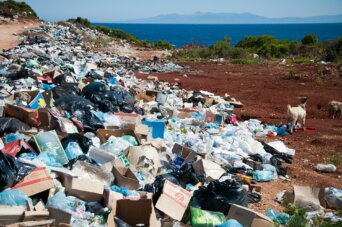- About
- Topics
- Story
- In-Depth
- Picks
- Opinion
- News
- Donate
- Signup for our newsletterOur Editors' Best Picks.Send
Read, Debate: Engage.
| topic: | Health and Sanitation |
|---|---|
| located: | Bosnia and Herzegovina |
| editor: | Katarina Panić |
The water supply company in Prijedor, a town in northwest Bosnia, has struggled with the rogue waste dumping near water wells for decades. The company used to clean areas, but the problem has appeared repeatedly anyway. Some ten years ago, the management decided to mark World Water Day every year by organising a trash clean-up to remove the bulky waste from the areas around the water wells. They have also seized the opportunity to call on the residents not to throw their trash near the water sources. It seems they have succeeded in raising awareness among residents.
“Finally, no illegal landfills around us,” Dragan Stamenić from the company told the media in Prijedor two days ago. “It took years, but it was worth the effort. It is about only one of the water wells, [...] one of the most important ones, but we will continue the effort for the others as well.”
In general, rural and suburban zones often face the problem of wild dump sites since residents avoid registering for garbage disposal.
“They would rather pollute nature than pay the bills. It’s an ugly picture of piled up trash in the nearest river, forest, stream and meadow,” environmental inspector Darko Dragić told the media.
The water company employees, the utility police, activists and inspectors have rallied around the idea of trying to end waste disposal near water sources and wells. Besides the bad habit of illegal dumping, the heaps of trash exist partly due to the waste-management company's lack of machines to reach every part of the municipality.
Maintaining the water utilities areas and keeping them clean and waste-free is not the only challenge for Bosnians. To protect the wells, one of the government’s measures was to forbid cattle breeding near water sources.
“I must admit, we failed,” an anonymous official confessed to FairPlanet.
For instance, the municipality of Prijedor decided to forbid the presence of animals within a certain distance from the water wells. However, the legislation was not made to be implemented, but rather to please foreign investors.
“It was a strict demand from international funds which have been financing the water supply system in Bosnia over the decades,” the official added. “We did try to implement it, but we faced strong resistance from the locals who live off of livestock breeding. So we made a rotten compromise. We pleased the donors by adopting the document as requested, but we never enforced it. We turned a blind eye instead.”
Photo by Antoine Giret

